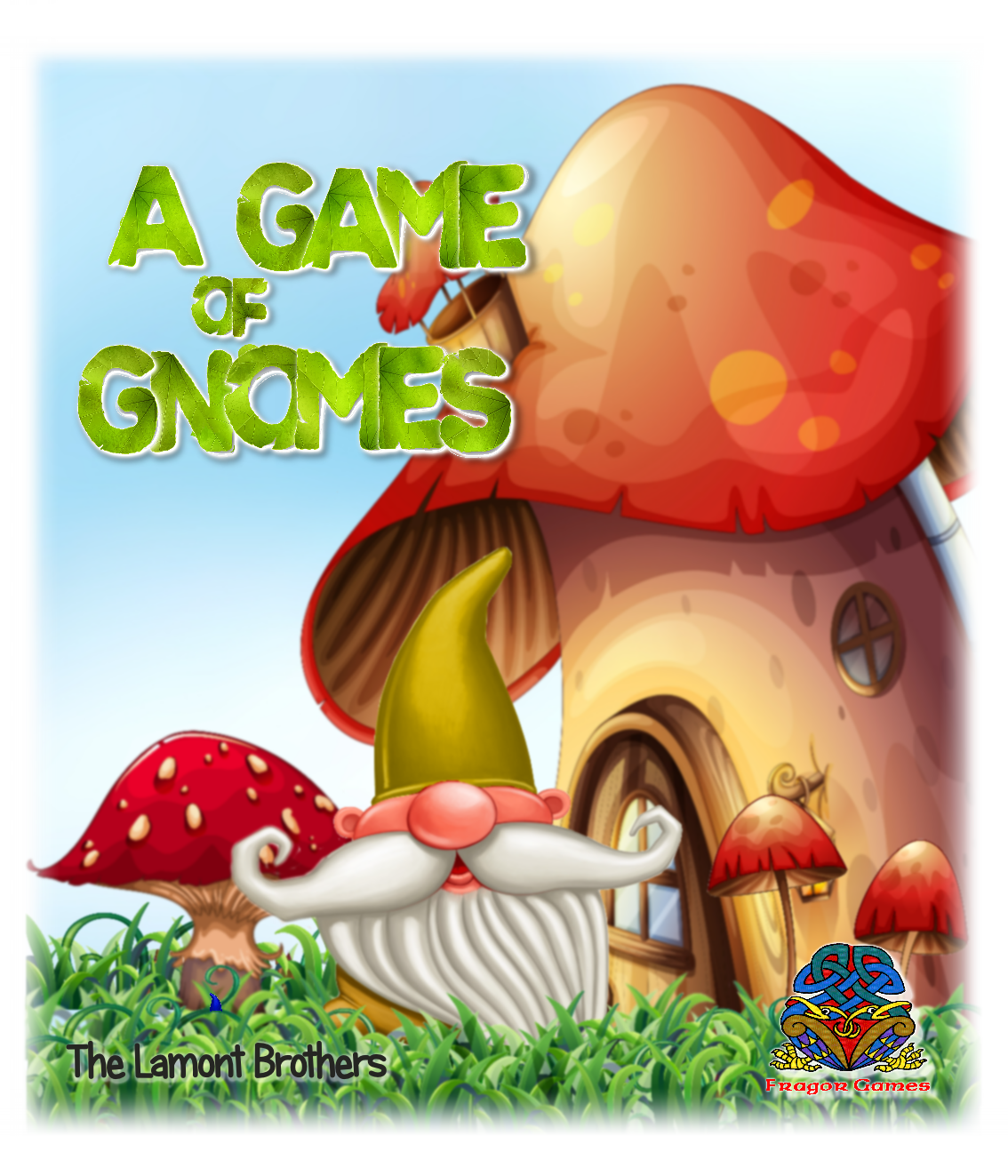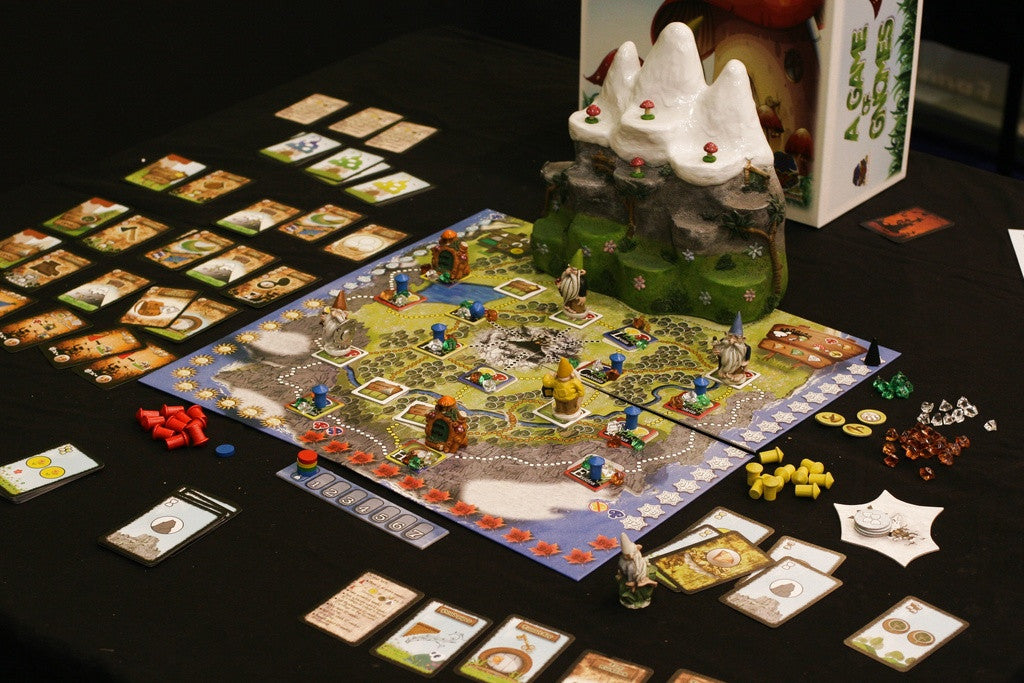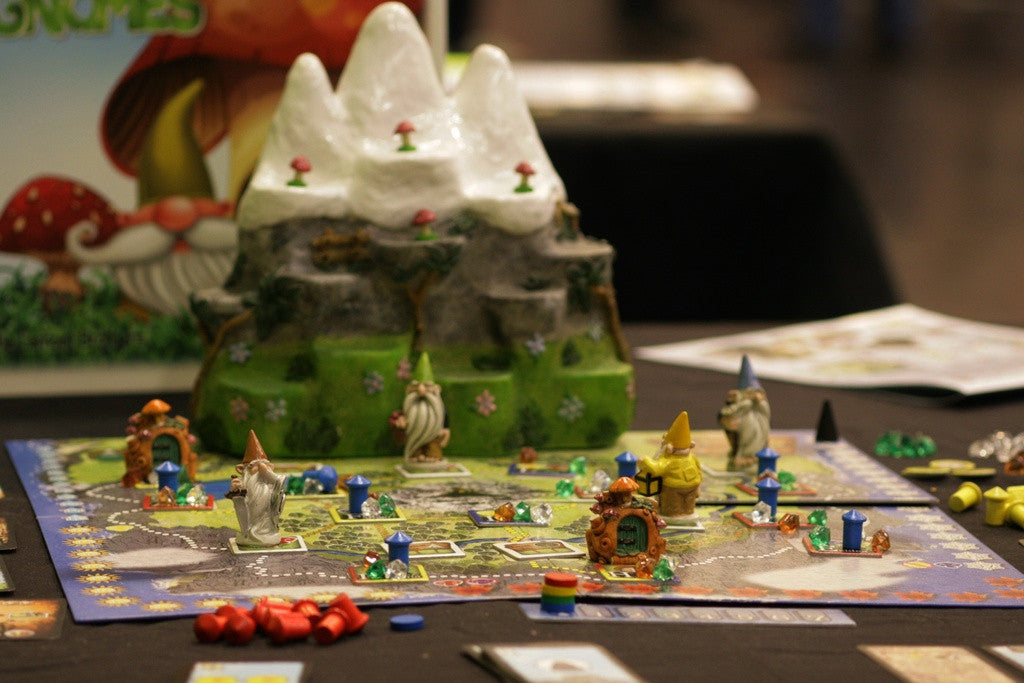A Game of Gnomes
Products title that includes 'PRE-ORDER' is subject to our Pre-order Policy
Couldn't load pickup availability
Delivery and Shipping
Delivery and Shipping
For more details, please refer to our Shipping and Order Information.
Pre-Order Policy
- Pre-order items are charged at the time the order is placed.
- Prices for pre-order items are subject to change based on final landed costs.
- If the final price is lower, the difference will be refunded to the customer in the form of store credit.
- If the final price is higher, customers will be given the option to either:
- Pay the difference, or
- Cancel the item for a full refund.
- Orders containing pre-order items will be placed on hold until all items in the order are available.
- Once all items have arrived and pricing remains unchanged, the order will be automatically shipped.
- Pre-orders are fulfilled on a first-come, first-served basis.
- If a pre-ordered item becomes unavailable (e.g., the publisher cancels the product), a full refund will be issued.
- Pre-orders may be cancelled and refunded by customers or the store.
- For transactions that are no longer eligible for direct refunds due to payment processor limitations, a store credit will be issued instead.
Description
Description
| Designer | |
| Publisher | Fragor Games |
| Players | 2-4 |
| Playtime | 90 mins |
| Suggested Age | 12 and up |
| Additional Info | BoardGameGeek (Images, Videos, Reviews) |
Foragers is a strategy game in which players take on the role of ancient foragers competing to be the most respected member of the tribe. In the game, foragers pick fruit from trees, fish in lakes, and hunt aurochs in the fields. After collecting these foods, the foragers return to a fire pit, where they "share" their food with the tribe and earn victory points. In addition, the foragers sometimes happen upon tools, which allow them to forage, fish, or hunt more efficiently. Of course, foragers are not completely altruistic and so they occasionally fight with each other to earn respect. The player who can best optimize their food and tool gathering, while also avoiding or winning skirmishes is the one who eventually earns the tribe leader title.
The game is played over a predetermined number of rounds, depending upon the number of players. In each round, all players simultaneously choose an action card, from a hand of 3 action cards (drawn from a deck of 10) to use for that round. Each action card lists 5 different actions, but a player may only use 4 of those actions each round. Then, in clockwise order, each player performs 1 of the actions on their card until all players have performed 4 actions. Such actions include things like: walking, foraging, eating, discovering, resting, sharing, and picking up a tool.
When players pick up food, they place it on their tableau, which tracks the food's freshness. At the end of each round, a "spoilage card" is flipped and all players "age" their food (i.e., move them along a food track). As the food gets older, it does not provide as much energy if eaten. Also, to score victory points, players must "share" their food before it spoils. In this sense, the players are racing not only against each other, but against nature.




